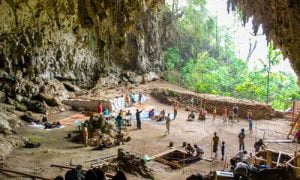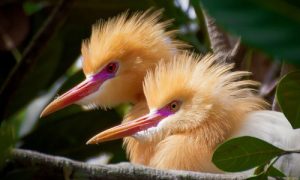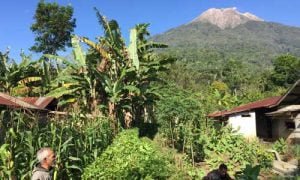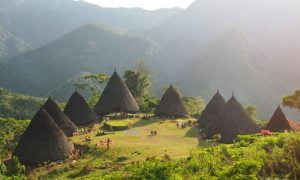What To Expect
You are embarking on an adventure in a place and among people whose lives are very different from your own. Many aspects of life in Indonesia will seem unusual. Remember that these are often the same aspects that make an area an exotic and attractive destination. While boat expeditions are considered easy, no trek is easy, even those rated “easy or moderate”. In addition to the personal physical challenges you may face, travel conditions can present unexpected obstacles, such as rough and bumpy roads and changeable weather. To prepare for this, “pack” a flexible and relaxed attitude. Bring a spirit of adventure and inquiry, a healthy sense of humour and a willingness to encounter the unexpected, and you will find your trip to Indonesia the adventure of a lifetime!
Travel Documents
Entry requirements to Indonesia have changed due to COVID 19.
Please read the below details carefully.
We advise all of our guests to monitor the travel advise of their government. Please always seek up-to-date advice prior to your travels as entry conditions can rapidly change in the COVID world.
For our Australian guests, we suggest seeking more information on Smartraveller and WHO.
Indonesian Tourist Visa
Visa entry requirements to Indonesia have recently changed due to COVID 19.
Visa on Arrival (VOA) is available for passport holders of 64 countries including, Australian, UK, US, and German nationals arriving at the international airports of Bali or Jakarta. For our Australian guests who require more information about the Indonesian Visa entry regulations please check on Smartraveller or please click here for further information
Applicants must have the following to obtain the visa:
· Passport valid for more than 6 months
· Return or onward ticket
The cost for the visa on arrival (VOA) is 500,000 Indonesian Rupiah (AUD 50,00) and is valid for a 30-day stay. To apply for the visa, you must show evidence of a return or onward flight booking to another country and health insurance that covers financing for COVID-19 treatment and medical evacuation to a referral hospital.
Bali Tourist Levy
From the 14th of February 2024, The Bali Provincial Government is charging a Tourist Levy for all tourists. The Levy is 150,000 Rp (AUD$15).
You can pay for this on arrival OR you can pay for it online before arriving. Click here to pay online.
Other Required Documents
Customs
Click here to fill out your Online Customs Declaration
Note: Custom declarations can not be processed more than 3 days before your arrival.
COVID 19 Regulations
Arrival
To enter Indonesia you NO LONGER need proof of Covid 19 vaccination. Please always seek up-to-date advice from your in-country Indonesian Embassy or Consulate before travel prior to your travels as entry conditions can rapidly change in the COVID world.
Further, we suggest seeking more information on WHO or for Australian citizens Smartraveller.
Accommodation
In Bali, we use the Holiday Inn, Baruna located on the beachside only a few minutes from the airport which allows us to dodge the traffic.
In Labuan Bajo we usually use the Puri Sari Beach Hotel. However, if this is not available we will use a similar hotel in Labuan Bajo.
Aboard The Boat
At least one night will be spent onboard our vessel, where western-style bathrooms, 3 cabins with fan and AC (a master bedroom with queen bed, and others with a mixture of bunks and shared style sleeping arrangements) await.
On The Beach
Most nights, we’ll be making camp on remote shores in Safari-style tents where you can sleep lulled by the sounds of lapping water and wake to watch the most brilliant sunrises
Insurance
Emergency Medical Evacuation Insurance is a requirement for all guests travelling on our expeditions. Once you have booked on an expedition we suggest booking your travel insurance as soon as possible to protect your investment. Trip cancellation insurance will reimburse you for any non-recoverable air or land expenses should you have to cancel your trip due to personal or family illness or leave the expedition early due to other reasons. For our Australian guests, our preferred Insurer is NIB, and you can contact our office direct, via phone or email, to obtain an insurance quote from us.
For guests travelling with us from outside Australia, please check Travel Insurance options within your Country.
If you should receive an injury 12 months prior to your travel date, you must contact the Insurance Company with details to ensure you are covered for this injury whilst travelling. Should you not do this and require medical assistance for this injury whilst travelling you may not be covered by the insurance company.
In the event that an aircraft evacuation is required, No Roads Expeditions will undertake to arrange the evacuation on the condition that the expenses are reimbursed by the passenger before departing the Country.
Note: Accidents caused by the inappropriate consumption of alcohol or drugs may void your travel insurance.
Get a Quote
While we don’t anticipate any uninvited medical disruptions during your trip, No Roads wants to keep your mind at ease and help you get adequate assistance and cover for your well-earned time away. We must ensure you’re covered during your journey.
We can provide you with Travel Insurance for your trip, allowing you to tick this off your ‘To-Do List” as soon as possible. (We strongly recommend that you take out baggage loss and accident insurance)!
Already have a trusted insurance provider?
That’s no problem at all, our primary concern is that you have adequate cover.
Got a Pre-Existing Condition?
Simply call our Insurance Team and quote the reference number we provide you with and they’ll complete an assessment on your behalf. In many cases, there is no additional premium that needs to be paid! Many common conditions are also automatically covered.
For all other nationalities please explore insurance providers in your country.
Again, if you’ve any questions, don’t hesitate to ask info@noroads.com.au
Getting There And Away
Flights
International
Depending on the Komodo Expedition of your choice your adventure will start in Bali or in Labuan Bajo, the gateway to the Komodo National Park. Either way, you will arrive at one of the two international airports in either Bali or Jakarta.
Domestic
Indonesia has an extensive domestic flight schedule. Flights to most destinations are conducted on jet aircraft. However, some flights are also conducted using twin-propeller aircraft.
As part of our 6 Day or 10 Day Komodo Expedition, your domestic flights are included while on your 5 Day Expedition you will have to make your own way to Labuan Bajo.
Luggage Allowance on domestic flights varies between 15kg -20kg. While you have the option to pay for excess luggage which is around AUD $5 per kilo we suggest traveling as light as possible.
Packing for Paddling
Personal Gear
On top of the list below, we recommend you bring a fresh set of clothes to leave in your hotel (if your itinerary has you returning to the same hotel at the end of your expedition). This way you will have a very fresh set of clothes to change into when you return from your expedition. Please ensure that if you are leaving a bag at the hotel that your bag is locked and that no valuables are left in your luggage. There really isn’t much to bring on our Kayaking Expeditions, but what you do bring should be packed into a water-resistant outdoor bag.
- Passport
- Airline tickets (international & domestic)
- Insurance policy – 2 copies (1 for you and 1 for our Guide)
- Personal toiletries – Toothbrush and paste, sports deodorant, lip balm, etc.
- T-shirts & Shorts or
- Summer dresses
- Sleepwear
- Underwear
- Bathers & Sarong
- Water bottle to take on the kayak with you
- Sea-kayaking clothing (shorts, sun protection “rash” shirt, and gloves to avoid blisters). Gloves and a rash shirt are highly recommended. You can purchase a No Roads rash shirt in LBJ if you wish
- Runners or light hiking boots & socks
- Pair of thongs to wear around camp and in villages
- Hard-soled wetsuit booties or sandals for sea-kayaking. Keen Sandals or Crocs are good
- Hat with wide rim (to keep the sun off your face)
- Waterproof torch or headlamp with spare batteries
- Rain poncho (something lightweight)
- Quick-dry sports towel/chamois
- One roll of your favourite toilet paper for backup
- Sunscreen
- Wet wipes or antiseptic hand gel
- Tropical strength insect repellent
- Polarised sunglasses (with retaining cord) and a spare set just in case
- A book or kindle for reading (optional)
- Camera (optional)
- Additional snacks – barley sugar, mentos, chocolate, muesli bars, etc (optional)
- Personal flippers and mask – we do have a range onboard our support boat for you to use (optional)
- Mosquito net and anchor points (if you want to sleep out in the open outside your tent) (optional)
*If you have something you are particularly prone to, ear infections or sinus problems, please ensure you bring any necessary medications with you.
Personal First Aid Kit
Your personal First Aid kit will contain band-aids, blister dressings, topical cream for bites and grazes, antibiotic cream for cuts and scratches, paracetamol, Deep Heat or another muscle liniment, and the all-important insect repellent. We also recommend bringing your personal “Reef Rash Kit”. We recommend if you are traveling in a group that you share a First Aid Kit. Please note that a first aid kit will be carried by your Guide.
Sleeping Gear
No Roads will provide a 2 man mosquito-proof safari-style tent which will be shared with your travelling partner or another guest of the same gender. You will also be provided with a stretcher bed and a self-inflating mat. We will provide a light blanket and the pillow from the boat for these nights.
For the night that you sleep onboard the boat, linen will be provided for you.
Land Wear
We will be doing a little bit of trekking so just a lightweight runner will be sufficient.
Note: If you have any questions regarding the above list or any other items that you want to ask about please do not hesitate to contact us. We can provide you with additional information at any time.
Supplied Equipment
- Two-person safari style tent
- Sea kayak, paddle and safety equipment including PFD (personal flotation device)
- Support boat for meals, accommodation (1 night), and store equipment
- Fresh water
- Soft Drinks and Juices
- All meals on boat including some snacks
- Inflatable mattresses and stretcher beds
- All eating and drinking equipment
Money
The currency in Indonesia is the Rupiah (Rp). Exchange rates vary depending on the strength of the US dollar and you can access the most updated exchange rates by clicking on the attached link. Cash and travellers cheques are readily accepted and can be exchanged for Rupiah at the airport, hotels, or banks in any major city. Credit cards such as American Express, Visa, and MasterCard are accepted in many hotels, shops, and restaurants in major towns and cities. There are also plenty of ATMs in Bali and a few ATMs in Labuan Bajo. For spending money while on your expedition it is best to have money in local currency (Rp).
Approximate current exchange rates as of February 2023:
1AUD = 10,000Rp
1USD = 14,182Rp
1GBP = 18,671Rp
The Kayaks
The kayaks we use are called Komodos. They are Australian designed and manufactured. The kayaks are adjustable meaning they can be dismantled and made into 1, 2, or 3 man craft. Usually, on an expedition, you will share a double kayak and if you prefer to paddle in a single kayak, please let your Operations Manager know before departing for your trip.
The kayaks are made out of durable plastic and are perfectly suited for expeditions such as this. They have large storage space in both the front and back of the craft as well as secure deck straps for immediate use equipment.
Each kayak comes with a handheld bilge pump, waterproof torch, and compass. We also have spare tow lines and octopus straps.
Each kayaker will be provided with a paddle, a floatation device, and a spray deck to keep water out of the capsule.
The Komodo Kayaks slot together like a jigsaw puzzle and are then secured together by nuts on both the top and bottom of the craft. These nuts are routinely checked and tightened to ensure the kayak is functioning at full capacity. You will be asked to check your kayak each morning and afternoon.
Komodo National Park
Komodo National Park is located in the center of the Indonesian archipelago, between the islands of Sumbawa and Flores. Established in 1980, initially, the main purpose of the Park was to conserve the unique Komodo dragon (Varanus komodoensis) and its habitat. However, over the years, the goals for the Park have expanded to protecting its entire biodiversity, both terrestrial and marine. In 1986, the Park has been declared a World Heritage Site and a Man and Biosphere Reserve by UNESCO, both indications of the Park’s biological importance.
Threats to terrestrial biodiversity include the increasing pressure on forest cover and water resources as the local human population has increased 800% over the past 60 years. In addition, the Timor deer population, the preferred prey source for the endangered Komodo dragon, is still being poached. Destructive fishing practices such as dynamite-, cyanide, and compressor fishing severely threaten the Park’s marine resources by destroying both the habitat (coral reefs) and the resource itself (fish and invertebrate stocks). The present situation in the Park is characterized by reduced but continuing destructive fishing practices primarily by immigrant fishers, and high pressure on demersal stocks like lobsters, shellfish, groupers, and napoleon wrasse. Pollution inputs, ranging from raw sewage to chemicals, are increasing and may pose a major threat in the future.
Today, the PKA Balai Taman Nasional Komodo and The Nature Conservancy are working together to protect the Park’s vast resources. Their goals are to protect the Park’s biodiversity (both marine and terrestrial) and the breeding stocks of commercial fishes for replenishment of surrounding fishing grounds. The main challenge is to reduce both threats to the resources and conflicts between incompatible activities. Both parties have a long-term commitment to protecting the marine biodiversity of Komodo National Park.
Major Islands of the Komodos
Komodo National Park includes three major islands: Komodo, Rinca, and Padar, as well as numerous smaller islands creating a total surface area (marine and land) of 1817 km2 (proposed extensions would bring the total surface area up to 2,321km2). As well as being home to the Komodo dragon, the Park provides refuge for many other notable terrestrial species such as the orange-footed scrub fowl, an endemic rat, and the Timor deer. Moreover, the Park includes one of the richest marine environments including coral reefs, mangroves, seagrass beds, seamounts, and semi-enclosed bays. These habitats harbor more than 1,000 species of fish, some 260 species of reef-building coral, and 70 species of sponges. Dugong, sharks, manta rays, at least 14 species of whales, dolphins, and sea turtles also make Komodo National Park their home.
Komodo Dragons
Komodo dragons are the largest lizard still living on Earth, but they are not the largest reptile. Alligators and crocodiles get bigger than Komodo dragons.
Komodo Dragons are a monitor lizard. Their scientific name is Varanus komodoensis. They grow to 3m in length and can weigh as much as 150kg. While they are usually slow moving, they can put on spurts of speed equal to a dog.
Komodo Dragons drool copiously. While their saliva is venomous to some degree, the mouth of a Komodo Dragon is not full of bacteria as formerly believed. Recent research shows that while Komodo Dragons have secrete venomous proteins in their mouths and their saliva is venomous to some degree, it is not deadly. Their victims die not because of blood poisoning but because of induced shock due to fast blood loss – enhanced by the venom preventing blood clotting– and occasional infections due to other reasons. Indeed their most powerful weapon is their serrated, curved, and large teeth, ready to cause some serious injury. Left untreated the possibility of death would become very real.
This is one way in which the Dragons get food. They hide in the scraggly jungle and wait for a victim to pass by. The victim is most often a deer, caribou, or goat. The Dragon attacks the prey and may succeed in killing it on the spot through their strong bites. Otherwise, the bites sustained by the victim will generally kill even larger beasts such as deer and buffalo eventually, and the Dragons using their keen sense of smell will detect and then eat the carrion.
The giant lizards have powerful claws which they use to devastating effects in fights with other lizards. Males have scratching fights with each other during mating season.
Komodo Dragons are excellent swimmers and can swim from one island to another. The island of Komodo has many beautiful beaches where a visitor can play and swim, but the presence of Komodo Dragon foot- and tail-prints in the sand warns the visitor to be cautious and watchful.
Some of Komodo’s beaches have beautiful pink sand, tinted by fragments of red coral mixed in with other shell and coral fragments. Other beaches have gray sand derived from cliffs of rhyolite. Heavy black sand composed of nearly pure magnetite accumulates next to the cliffs.
Snorkeling and diving around Komodo are some of the best in the world, especially for seeing soft corals. A professional diver told us, “You know when you’re a diver, you spend your life dreaming of and searching for the best dive site in the world. Well, Komodo is it.”
Endangered Species
The current population of Komodo Dragons seems relatively stable at about 5,000 animals, yet scientists are concerned that only 350 of them are breeding females. This may be a normal sex ratio; little is known about the species. The Dragon’s limited distribution makes them highly susceptible to natural or human-caused events, such as storms, fire, or disease.
The primary threats to the Dragon’s survival include illegal hunting and loss of habitat to human settlement. As was the case with most large, spectacular animals the world over, Komodo Dragons were sought as trophies by big-game hunters. They also are killed for skins and feet to make novelties. Early in this century, many Komodo Dragons were trapped for sale to zoos and private collectors.
Trade of Komodo Dragons is prohibited under CITES. Protection from poaching is made easier by the Dragon’s limited distribution; there is little human habitation on the islands where it occurs, and Komodo Island, the dragon’s stronghold, has been made a national park.
Kayaking - FAQ's
Sea-Kayaking – What’s it like?
Sea-kayaking is a most wonderful way to explore the world. It’s inexpensive and environmentally friendly, does not require months of training and superior strength, and is good for the body and soul. Sea-kayaking can take you beyond the reach of civilization into the natural world, into the space between earth, sea, and sky.
Is it easy to learn? Do I have to be fit?
No prior experience is necessary. As long as you are in good health and have good general fitness along with a sense of adventure, you will quickly master the skills needed to paddle and steer your kayak. Our experienced guides will give an introductory lesson at the beginning of the journey and will be there to help and keep everyone happy and safe throughout. Obviously the fitter you are, the more enjoyable your experience will be and the easier you will find the kayaking sections.
Would the Expedition be too hard/too easy for me?
We believe both the 5-day and the 10-day programs have some challenging sections but they are not beyond the person with general fitness. Our 6-day program has a little less kayaking involved, however, if you are physically fit and have a sense of adventure then all our expeditions would be suited to you.
Is it safe?
The Komodo Islands are a sheltered island group and as such large swells are uncommon. There are sections of the sea that have amazing whirlpools, but these are easily navigated through.
The sea-kayaks we use are sleek and very stable, and all are equipped with the usual safety features. and high-buoyancy life-jackets.
The No Roads guides have kayaked, worked, and adventured in wild places for many years, and are skilled in risk management and emergency medical care.
Finally, each expedition has a support boat that is always close by to help out anyone in trouble and we have radio contact with the Park Rangers office.
What’s our group size?
We keep our groups small, a maximum of 9 on each, to minimize our impact on the places we pass through, and to maximize our enjoyment of each day.
Are the kayaks singles or doubles?
We use double kayaks, which means you will be paddling with another person. You may like to book with a friend and paddle together, or you may be happy to get to know your fellow travelers’ by kayaking with them.
For more experienced kayaks we can convert the kayak into a single if you wish. Single kayaks are limited. Please contact our office directly for more information.
What about the sleeping arrangements?
This depends on the expedition you choose.
The majority of nights on the kayaking part of the expedition are usually spent in tents on a deserted beach, however, we do have one night in cabins onboard our support boat.
The rest of the accommodation is in Hotels, in Bali & Labuan Bajo (depending on your expedition). All accommodation is twin-share, a single supplement is available at additional costs.
In Bali, we stay at the Holiday Inn Resort in Tuban. This hotel is situated right on the beach and only a 5-minute drive from the airport, which makes your transfer to and from the airport nice and easy. It is away from the main hustle and bustle of Kuta, however, it is close enough to be part of it, if you wish.
In Labuan Bajo we stay at the Puri Sari Hotel. This hotel is also situated right on the beach a few minutes out of the center of the town and it also boasts one of the few pools in the region.
Please note accommodation might change depending on availability.
Is diving possible?
The snorkeling and scuba-diving around the park are world-class and are highly recommended activities.
If you do not wish to use the snorkel gear we have, the equipment can be bought in Labuan Bajo or you can bring your own from home.
If you wish to SCUBA we suggest you extend your stay and organize a dive with one of the local operators through the hotel in Labuan Bajo. All equipment is available for hire.
Alternatively, you can add a SCUBA Day to your kayaking trip for an extra $310. This will provide you with 2 dives at some of Komodo’s best dive sites. The SCUBA Dive operator will meet us out in the park and drop you back to us after the dives.
Apart from roaming the sea above and beyond, what else is there to do?
Where do we start, there’s lying in hammocks, reading books, going fishing, swimming, beach-combing, meeting the locals, walking through forests, bird-watching, taking photos, exploring, playing beach volleyball, and coconut petanque, dining with friends, sharing stories, watching the sunset, playing guitars, gazing at stars, sleeping soundly…. or maybe just doing nothing and watching the day go by. You’ll love it!
Why don’t we visit Komodo Island itself?
While the island of Komodo has Dragons on it, Rinca is a much better place to witness the Dragons. Furthermore, the seas around Komodo and Rinca are riddled with strong currents, whirlpools, and mysterious swells and the stretches between Komodo and the Rangers Office are at times treacherous and too far to paddle to be enjoyable. Rinca is also a smaller island with a similar number of Dragons and therefore your chances of spotting them in the wild are a lot higher.
Health And Safety
We will do everything we can to support guests that have disclosed a medical condition, allergy or anaphylaxis, by informing all in-country personnel and ensuring reasonable provisions are made. We do, however, suggest and encourage all affected guests in this situation to assist us by reconfirming this information in situations or instances where it may be required to ensure everyone has a safe and enjoyable adventure experience.
General Travel Advice
All No Roads staff and teams consider guest safety and wellbeing an absolute priority and always follow the travel advice and guidelines of the World Health Organisation (WHO) and Smartraveller. To further maintain the safety of our travelers, we promote good personal and hand hygiene along with adherence to safe food preparation practices.
Dietary Requirements
We are able to cater to all common special dietary requirements. Whilst on the expedition most of your meals will be Indonesian-based meals and please advise us prior to your departure if you have any food allergies we should be aware of.
Women’s Health and Issues
The Komodo Dragon has a very keen sense of smell, and being Carnivores, they can smell blood from miles away. As a requirement to visit the Komodo Dragons, Park Rangers will ask if any female adventurers are menstruating at the time of the trek. If so, you may not be allowed to go for the trek through Rinca Island as it will not only put you in danger but may put the others in your group in danger. Of course, you can lie to the Ranger but you can’t lie to a Komodo Dragon. If you have any concerns in this area, please discuss the same with your Guide prior to your arrival at Rinca Island.
Alternatives we suggest, are:
- Choose an expedition date that is compatible with your menstrual cycle
- If you are on a contraceptive pill, skip your period while on the expedition
- Don’t do this part of the trip. You will still be able to go to the Rangers office with the group and see the Dragons there, but you will not be able to do the trek. Keep in mind, the trek takes approximately 2-3 hours so bring a book to keep you occupied.
Medicines and First Aid
All trekkers are recommended to carry a personal first aid kit with medicines for common ailments, cuts, and bruises, pain killers, etc. Anyone using any prescription medicines regularly should carry a supply for the whole duration of their expedition. Please consult your doctor and include items and medicines that may be required for you or for the area you are traveling in. No Roads does not supply any medicines and takes no legal responsibility for any medical treatment or professional medical support to our clients.
The No Roads Guide will be carrying an extensive Wilderness First Aid Kit.
COVID 19
Unfortunately, COVID is the “New Normal” and we all have to follow certain guidelines to ensure the safety of ourselves, our fellow guests, our team, and the local communities.
Immunization
No vaccinations are required for entry to Indonesia, however, we suggest that you consult your doctor to confirm if any current vaccinations or treatments are required for the area you are travelling to. You should consider cholera, typhoid, and hepatitis vaccinations and make sure your tetanus cover is up to date, however, this should all be discussed with your medical physician.
Plan ahead in getting your vaccinations. Some of them require an initial shot followed by a booster, while some vaccinations should not be given together. This also applies to some malaria prophylactics, which have to be begun at least a week before you leave home.
Typhoid: Recommended for Indonesia. Ideally 2 weeks before travel.
Hepatitis A: Recommended for Indonesia. Ideally 2 weeks before travel.
Cholera: Recommended for Indonesia. Ideally 2 weeks before travel.
Tuberculosis: Recommended for Indonesia. Ideally 3 months before travel.
Hepatitis B: Recommended for Indonesia. Ideally 2 months before travel.
Yellow fever: Certificate of vaccination required if arriving from an area with a risk of yellow fever transmission for Indonesia. Ideally 10 days before travel.
Japanese encephalitis: Recommended for Indonesia. Ideally 1 month before travel.
Malaria: Consider this seriously
Please be advised that the Labuan Bajo and Komodo areas have strong Malaria populations and as such all precautions need to be made while on land.
Fitness
All participants must make an effort to get in good physical condition for the trip they have signed up for, obviously the fitter you are the more enjoyable you will find this expedition. Every participant should have a health check with a medical physician to ensure that they are in good physical health prior to embarking on their trip. No Roads is not a medical adviser and we take no legal responsibility for medical or other emergencies that may arise on the course of a trek. As the service provider and hosts, we will take all necessary steps needed to evacuate injured or ill clients on the understanding that all costs involved will be paid to us before leaving the country (see Insurance).
While not everyone has access to a kayak, we do suggest that you try one so that you understand what is involved with paddling. If you own or have access to a stand-up paddleboard try and fit this into your regular training regime. A rowing machine is also excellent training for these types of adventures.
Lower back, upper body, and core strength training are all also very important when kayaking, so try and incorporate some training in these areas. For those without access to gyms, push-ups, sit-ups, and pull-ups are excellent and all can be done at home or when you are out walking/jogging. Please consult a professional trainer for advice on training if you are unsure or starting a fitness program for the first time.
Due to safety regulations, our kayaks can hold a maximum capacity of 100kg for a single kayak and 200kg for a double kayak. If you have any questions or concerns regarding this please contact our office to discuss this further. We hope this helps you all enjoy your time on expedition.
Sustainable Travel
Philosophy
We believe strongly in low impact or rather a positive impact from tourism. Broadly speaking, this means that we try to minimise the negative aspects of tourism on the local cultures and environments that we visit and highlight the positive aspects. Please see our online policy for more details on our social and environmental approach and commitment.
The Environment
Many of the places you will visit are pristine. As travelers, we should try to have as little impact on these natural environments as possible. As such we recommend the following:
1. We discourage the use of soaps when washing both body and clothes. Vigorous scrubbing is usually sufficient. Even biodegradable soap is not good for any watercourse and as such is harmful to the eco-system. We do provide fresh water to rinse off the saltwater during the trip. However, freshwater is limited and has to be carried from Labuan Bajo. There is no fresh water available within the National Park.
2. Please do not dispose of plastic bags and wrappers in either pits or in fires. These take years to degrade or let off toxic fumes when burnt. Simply put them in your pack until you return home (they can be discarded in waste bins before going through customs and immigration).
3. Please do not dispose of batteries in country. They are extremely harmful to the environment and usually, local governments do not have any means to dispose of them correctly. Return old batteries to your home country for disposal there.
4. At campsites use toilet facilities that are provided for your use.
By abiding by these simple guidelines, you will be protecting the local environment for the people who live there and for your children’s children.
The Local Community
Our philosophy and aim are to pay back to the local communities.
No Roads dedicated in supporting local environmental projects in the places we visit. A $20.00 donation of each expedition booking is going towards a local charity project. For more information please visit our charity tab on the top of each expedition page.
On this expedition, we will visit local villages and a local school for an insight into their daily life. While we encourage to bring useful gifts such as educational games and toys, or books we discourage the distribution of lollies and sweets (the next dentist might be miles away).
No Roads is also supporting local improvement projects such as water and power supply.
Rubbish management is a broad problem in Asian countries and our crew is conducting frequent beach cleanings along the way. Our guests are invited to help if they wish.
School Visit
A lot of guests ask what they can bring with them to hand out to the children on the school visit and our suggestion is always to only bring a small number of supplies and something that is light to carry in your luggage.
The school and children are always happy to receive any donations by the way of writing materials, colouring books, cards, pens, pencils, stickers, sports equipment, such as tennis balls, skipping ropes, bats and balls, etc. Please do not feel obliged to bring anything with you to donate to the school as this is a personal choice for each individual.
Expedition Extensions
For those that have some extra time on their hands, we offer Expedition Extensions on Bali and Flores. These crafted itineraries will give you a more complete picture of your destination and give you an appreciation of the local cultural and natural history.
Journey Extensions
Check out our Journey Extensions for those that want to stay a little longer or try something different along the way.
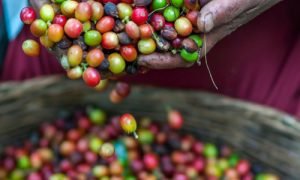
Duration: 3 hours (9am-12.00pm)
Price: AUD $75 per person (minimum of 2 guests)
Tour Includes
Collection and return to Hotel by air conditioned car
Guided Tour of coffee plantation & surrounding area
A free packet of ground coffee (packaged)
Coffee and morning tea at Cafe Inn Hit
*Please ensure that runners or light hiking boots are worn on this extension.
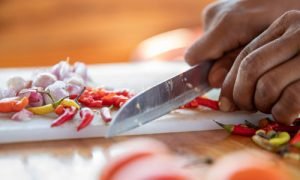
Cook and eat three delicious traditional Indonesian meals, and take the recipes home.
Duration: 3.5-4 hours (9am-12.30pm)
Price: AUD $75 per person (minimum of 2 guests)
Tour Includes
Collection and return to Hotel in a air conditioned car.
Visit to local market with Chef to purchase food for the cooking class
Water/mineral water
Cooking instructions & participation in cooking of 3 main meals
Copies of recipes
Duration: 5 Days / 4 Nights
Price: AUD $850 per person (twin share). Single Traveler $1250 ex Labuan Bajo
For those that have just completed the Komodo Dragon trip, our 5-day 4 night Flores Road Trip is a perfect trip extension. Please note that this itinerary can also be done in reverse to work with your kayaking itinerary.
Flores is one of the most diverse landscapes on earth with an amazing array of cultures mixed in. Dramatic mountain landscapes, lush fertile valleys, rivers, lakes, waterfalls, and more await those that wish to explore the island. To top the trip off we will take you to a volcano (Kelimutu) that has three different colored lakes.
Please note that Flores is a rugged and mountainous island and as such the road trip can be long. The hotels used are the best available. They are usually very basic with hot water. The Eco Lodge in Moni has excellent facilities throughout.
Day 1 Labuan Bajo to Ruteng
After breakfast, we will start our road trip to Ruteng. The road will wind its way eastward for a couple of hours before we reach Cancar (pronounced Chanchar). There we will head out to Cara village and climb a small hill that looks over a wide valley. Cara is famous for its spider web rice fields. More technically the agriculture they persist with is known as Lingko in which a field is divided up among the various families of a village from one central location. A wooden pole known as the lodok is placed in the centre of the land. A string is run out to the field’s extremities and then divided into moso (meaning hand) forming the wedge-like fields. As the contours of the land are taken into account across this moso, the field starts to resemble a spiderweb. There are great views of these fields from this hill.
We continue on after lunch to Liang Bua about 1 hour from Ruteng. Liang Bua is the resting place of the Homo Floresiensis, a 106 cm high humanoid that lived in these parts. Discovered in 2003, scientists now speculate why the Hobbit as they are being dubbed, died out. Was it because of Homo Erectus or was it something else? This large grotto cum cave is just off a side road that winds its way through beautiful rice fields and mountain terrain. A local guide will come and show you through the place including a small side cave and the opening to a deep 27-meter hole that leads to another cavern (this is not accessible by non-scientists).
From Liang Bua we will head back to Ruteng and the Susteran Maria Berduka Cita convent run by some very nice Sisters. The rooms are very clean and there is even BBC available on the TV.
Day 2 Ruteng to Bajawa
We continue eastwards into more rugged mountain roads. Along the way, we will stop at a small lake called Ranamese with sweeping views of the coastline. From there we continue to the seaside village of Lega Lapu where we will sample some Arak or Palm spirits. While you may have tasted Arak before, this brew is quite good and actually drinkable.
From Lega Lapu we continue back into the mountains for Bajawa. This is a great yet strange town with bareback cowboys and a beautiful landscape to boot. In the afternoon we will head to Soa which is a natural hot spring just out of town. This is a great place to relax and soothe aching muscles. Tonight we will dine in a timber restaurant (Lucas) that makes great fried potatoes.
Overnight Bajawa Roo Hotel. (B)
Day 3 Bajawa to Moni via Ende.
This is our last day of driving and possibly the most spectacular of them all. After an early breakfast, we will head by car toward an amazingly beautiful valley near the Ngada village of Bena. However, Bena is where we will end our 1.5-hour trek from Gurusina down in the valley. Our trek will take us along small paths back up the mountain, through several Ngada villages.
Ngada culture is based on the balance of the male and female. Houses and smaller structures are either characterized by a male or female spirit. Ngada culture is matrilineal, meaning that property ownership and clan names are passed down through the woman’s side. The men however have great influence in day to day functions of the village. Ngada villages are welcoming and are fascinating and beautiful places to trek through.
We finish our hike in Bena, a large Ngada village overlooking the valley. Keep an eye out for small wooden houses and people sitting atop the homes in these villages.
From Bena, we continue on to Ende and then onto Moni. The road from Ende to Moni would have to be some of the most beautiful on the planet, with sweeping valley views and dozens of waterfalls cascading in the distance. We will arrive in Moni quite late so dinner at the Eco Lodge is suggested.
Overnight Kelimutu Eco Lodge (B)
Day 4 Moni to Kelimutu
We will rise early, around 430am, to walk to the summit of Kelimutu. We can get a small breakfast hamper put together of banana pancakes, water, and a boiled egg to have on Kelimutu. The park’s car park is a 30-minute drive from Moni and then from there a fairly easy 30-minute walk to the top. If we are lucky, the cloud will part at sunrise and the beautiful turquoise lakes of Kelimutu will reveal themselves.
Kelimutu is 3 dormant volcanoes that have been filled with water. Due to minerals being dispersed into the water, the lakes exhibit varying colours. The strange thing is that the lakes are so close to each other but the lakes can have different colours such as red, blue, and black.
If the summit is shrouded in clouds (which is common) and you don’t see the lakes, don’t worry. We will head back down to Moni with a possibility of a 2-hour walk through the fields to the Eco Lodge. We can shower and get another bite to eat there watching the Kelimutu summit from your room waiting for the cloud to clear. We can return to the summit in the afternoon or if all else fails, we can go up again the next day.
We suggest dinner at the Eco Lodge and our personal favorite, Mori’s Moni chicken. (B)
Day 5: Moni to Ende to Bali
This morning, assuming you have already seen Kelimutu, we will go for another walk through the valley. We can even arrange for a horse ride through the villages at your own expense. We will also visit the 10000 Rp market where every bunch of vegetables is 10000 Rp. The stall next door will sell for the same price so the price is not negotiable. The fruit and vegetables are displayed beautifully and it is a nice place to wander.
From there, we will head down to Ende for your flight back to Bali. (B)
Included:
– Accommodation between Labuan Bajo and Moni
– Expert No Roads Guide throughout
– Vehicle use throughout trip
– All meals as outlined in Itinerary
Note: If you are adding this extension to a Komodo kayaking trip then your flight to or from Ende before or after your road trip is included in the Komodo Kayaking trip. Please contact us directly to confirm dates if you wish to add this extension on to a Great Creatures Expedition.
Not included:
– Accommodation in Labuan Bajo
– Flight to and from Flores
– All other incidentals including lunches and dinners
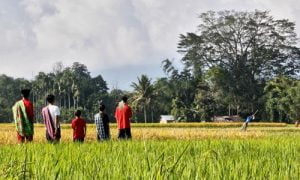
Duration: 4-6 hours (May-Oct)
Price: AUD $85 per person (2 guests or more)
Price: AUD $115 single guest
Tour Includes
Collection at your Hotel by air-conditioned car
Transfer on the back of a motorbike from the main road along a dirt road into the village
Guided tour of vegetable crops and banana plantations
Guided tour of the village
Lunch in the village
5-20 minute trek through the rice fields to the “pregnant lady rock” and will be told the local story of how the rock formed. Guests will then head back into the village, where once again they will get on the back of a motorbike for a trip to see the fossilized trees and local hot springs.
Mbeiling Eco Lodge is a haven for wildlife and the lodge contributes significantly to the conservation and sustainability of the local communities and species of the area.
Stay overnight at this stunning Eco Lodge, which is 45 minutes from the centre of Labuan Bajo.
We can arrange activities such as the Mbeliling Trek, Bird Watching, Flores Coffee & Nature Appreciation Tour, Cunca Wulang Waterfalls or Cecer Village Visit all from Mbeliling Eco Lodge.
Price: AUD $130 per room per night twin share
Check in – 2.00pm – check out 12.00pm
Inclusions:
Return transfer to and from Labuan Bajo by air-conditioned car.
Standard Double/Twin Room accommodation
Breakfast
The highlight of this three day tour is the fully guided climb up Mt Inerie to see the sunrise. Mt Inerie is 2,245 meters above sea level and is also one of the highest volcanoes in Flores, the trek takes six hours and starts at the very early time of 2:30 am. Tour also includes a visit to the local hot springs and a visit to the traditional village of Bena. This trip is a wonderful example of the incredible sights that you can discover when you go off the beaten track and take the road less traveled.
Duration: 3 days
Price: AUD $490 per person (minimum of 2 guests)
Price: AUD $750 – single guest
Tour Includes
All transfers to and from airport.
Return domestic flights – Labuan Bajo to Bajawa
2 Nights accommodation at Bajawa Roo Hotel including breakfast
Town tour of Bajawa
Visit local hot springs
Sunrise volcano trek up Mt Inerie (start time is 2.30am)
Local Guide for Mt Inerie trek
Driver in Bajawa
Meals – 2 x breakfasts (lunches and dinners at guests own expense)
* Guests must have a good level of fitness to complete the Mt Inerie Volcano Trek. Hiking boots are essential.
Flores is a relatively unexplored part of Indonesia. This mountainous island hides beautiful villages from the normal tourist, but with this 2 day trek, you will venture into this wonderland and experience the great hospitality of its’ people.
Itinerary
Day 1: We will leave Labuan Bajo at around 8am and head up into the mountains to Dintor Village (approx 4 hours drive). Along the way we will have lunch and witness the ruggedness of the Flores landscape. Once we have arrived at Dintor Village we will start our trek for Wae Rebo village, which will take us through the amazing open mountain terrain where we will see the fantastic cone shaped houses (approximately 2 hours). In Wae Rebo we will stay in a traditional home and be the guest of the village. They will show us their way of life high in the mountains. This is a great experience for those who want to witness traditional lives in Flores. Dinner and Breakfast will be provided in the village. (L,D)
Day 2: After breakfast you will have some time to immerse yourself in the local village before we start our trek down to Denge Village and then drive to Dintor Village where we will have lunch. From there we will return back to Labuan Bajo in the early evening for you to continue your travels. (B,L)
Included
Car and driver
Local Guide
Overnight accommodation in Wae Rebo Village
Breakfast, Lunch and Dinner (as per itinerary)
Exclusion
Accommodation on the night of Day 2 (your return to Labuan Bajo). We can offer accommodation in Labuan Bajo for AUD$95 Twin Share subject to change and availability.
Price
We can run this trip for 1 – 5 Pax
1 Person $650
2 Person $375 per person
3 Person $345 per person
4 Person $315 per person
5 Person $300 per person
We Are Here To Help!
We have tried hard to provide you with a greater insight into this expedition but we ain’t perfect!
If you do have further questions please contact our expert team members through one of the below channels.
No Roads Expeditions Support Hub
Australia HQ: +61 (03) 95988581
Email: info@noroads.com.au


